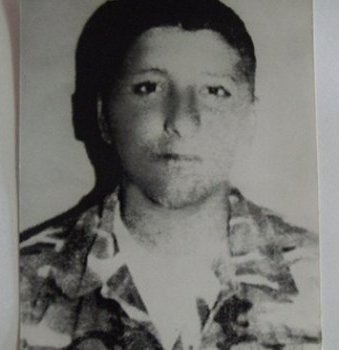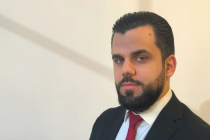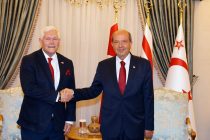Today, Turkish Cypriots will hold a commemoration service for a young soldier killed on duty in Güvercinlik, Mağusa/Famagusta 21 years ago. Private Allahverdi Kılıç was just 20 years old when he was shot dead by unidentified assailants as he stood guard on the night of 8 September 1996. Another Turkish soldier, Burhan Cihangir, was also wounded.
Bullets rained down on the pair, who were on duty at an observation point by the Green Line border, next to the Dhekelia British Military Base. Kılıç’s body had been hit by four bullets. Greek Cypriots are suspected to be behind the murder and attempted murder, in retaliation for the deaths of two Greek Cypriot civilians, Tassos Isaac and Solomos Solomou, during two separate border incidents a month earlier.
Like Isaac and Solomou, Kılıç’s killers have also never been caught, nor have any attempts been made by either side to bring their respective culprits to justice.
Commemoration
According to a statement issued on Thursday by North Cyprus’ Armed Forces, a remembrance service for Private Allahverdi Kılıç will be held at the spot where he was killed at 10am on Friday, 8 September 2017.

A minute’s silence will the held, followed by the singing of İstiklal Marşı (the Turkish national anthem) and short speeches by a representative of the Families of Martyrs and Disabled War Veterans Association and an officer from the 4th Infantry Regiment.
Allahverdi Kılıç was just 40 days old when his family moved to North Cyprus
The family of the murdered solider had moved to Cyprus in 1976 when Allahverdi was just 40 days old. He had won a place at a university, but decided to put his studies on hold to complete his military service. His death left his family devastated.
In a candid interview with journalist Erçin Şahmaran in 2013, Allahverdi’s older brother Yaşar Kılıç called for peace on the island, saying the pain his family had experienced was also the same for Greek Cypriot families whose children and relatives had been killed:
“See the Greek Cypriots in the South, aren’t they distraught, don’t they cry for the loved ones they’ve lost, for their children, their siblings? Is it possible for them not to? No one should die. No one should feel this pain. What is the reason for this?”
“If they took this land now, would my brother come back? He won’t return anymore. This mind set has dominated us from the 1950s until now, but what has anyone gained? Why can’t we live together as decent human beings?”





